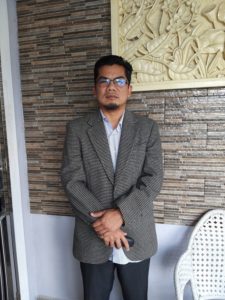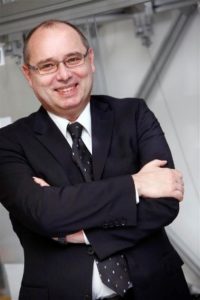Keynote

Dr. Wan Mohd Faizal Wan Mahmood is currently an Associate Professor at the Centre for Integrated Design for Advanced Mechanical Systems (PRISMA), Faculty of Engineering and Built Environment, Universiti Kebangsaan and has been with the university since 2002. He holds a Bachelor of Science in Mechanical Engineering (BSME) from Columbia University, U.S.A., a Master of Science (MS) in Power Systems Engineering from Kobe University of Mercantile Marine, Japan, a PhD in Mechanical Engineering from The University of Nottingham, United Kingdom. His research subjects include computational and experimental works on particulate emission from diesel engines, water-emulsified fuels, biomass gasification and energy recovery from gas turbine exhaust. He has been teaching undergraduate and postgraduate courses in Thermodynamics, Fluids, Computational Fluid Dynamics (CFD), Carbon Capture and Storage (CCS), Thermal Systems and Energy Recovery from Biomass. He also has an industrial experience working as a Turnaround Planning Engineer in a petroleum refinery from 1995 to 1999.
Energy and Transport in Malaysia
Abstract:
For many decades, global energy consumption has been dominated by fossil fuels. Statistics in 2017 show that oil, coal and natural gas accounted for over 80% of the primary energy consumption, while the rest were contributed hydro power, nuclear and renewables. Renewables reached a new high of only 3.6% in 2017. This over dependent on fossil fuels in some ways hampers the effort of reducing carbon emission. Transport sector is one of the main energy consumer with about a quarter of the total energy is consumed in the sector. Future transport is expected to be much more efficient with lower emissions than today’s transport. Therefore, with the advent of future transport technologies such as electric vehicles and fuel cell vehicles equipped with future automotive technologies, the outlook of energy and carbon emissions and its impact on climate change is something worth deliberating.

Prof. Dr.-Ing. Dr. h.c. Dieter Schramm graduated in mathematics at University of Stuttgart in 1981 and received his PhD in Engineering in 1986. From 1986-1998 he worked at Bosch as group leader and department head of development departments for automotive systems. He joined Tyco Electronics Ltd. in 1999 and held the positions of Director Global Automotive Engineering and CEO of TE – Pretema GmbH. In 2004 he was appointed head of the Chair of Mechatronics at the University of Duisburg-Essen and since 2006 elected Dean of the Faculty of Engineering. His research interests include electrified automobiles, driver assistance systems, vehicle dynamics and cable driven manipulators. In 2015 he was awarded Dr. h.c. by the University of Miskolc, Hungary. Along with his research activities he is director and partner of several companies in the field of research and post graduated education.
Future Automotive Systems: Highly Automated Driving and E-mobility
Abstract
The individual transport system currently experiences an area of innovations to an extend that has not yet been experienced before. Until recently, systems like lane-keeping assistants or intelligent headlight controls were pure visions. Today however, many new cars are already equipped with this kind of systems. To be mentioned are in particular two areas of innovation, comprising the potential to revolutionize the entire individual transport system. One of them being the replacement of the internal combustion engine by completely or partly electrified propulsion systems. The second one is autonomous driving with its milestones assisted and highly automated driving.
The lecture will highlight the above mentioned main trends in the automotive industry. Thus, some aspects of current developments in the areas of electro mobility and autonomous driving will be covered. The impact of the new systems on traffic flow, pollution and energy consumption will be illustrated by summarizing the results of various fleet tests and contemporary examples from vehicle development.
Another part of the presentation is dedicated to findings about the acceptance of new technologies by customers and their impact on individual traffic as well as with development methods to bring these technologies towards a successful market launch.
The lecture will be supplemented by a short introduction to other research areas currently pursued at the chair of mechatronics which would open up opportunities for future cooperative research projects.
To register to the event, please fill the form here.
